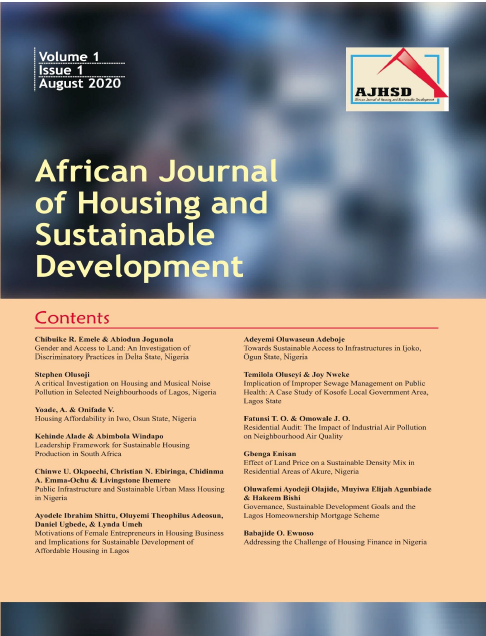Public Infrastructure and Sustainable Urban Mass Housing in Nigeria
Abstract
This study discusses public infrastructure in urban mass housing in Nigeria, and how it can impact Sustainable Development. The study was conducted in Owerri, Imo State, Southeast Nigeria. Four purposively selected mass housing neighbourhoods for middle income residents within Owerri metropolis were appraised for neighbourhood infrastructure namely; network and quality of access roads and drainages, availability of public services, availability of communal activity areas, and safety and security measures in place in the neighbourhoods. Case study method was used for the study. Data collection was through pictorial documentation and on-site physical appraisal. The findings of the study show that estate infrastructure where available, were inadequate, thereby detracting from the achievement of environmentally and socially sustainable neighbourhoods for the residents. The study further revealed a clear absence of an integrated housing infrastructure policy which addresses quality of housing infrastructure and its implications for social sustainability. It is therefore recommended that housing estate development in Nigeria must integrate from the beginning, basic facilities and services that will complement the individual housing units, create a sense of community, and ensure proper management and maintenance of the estates. These are considered critical to the attainment of Sustainable Cities and Communities (SDG goal 11).

